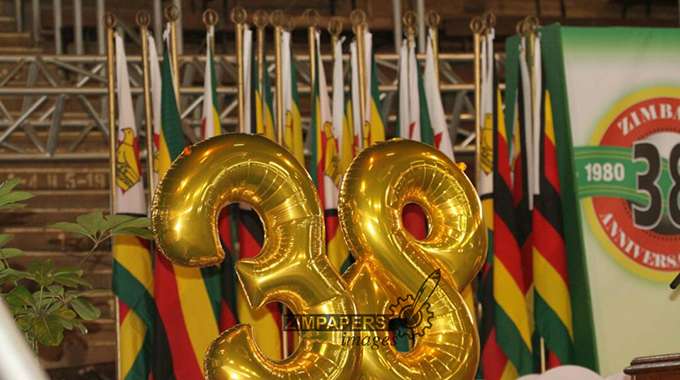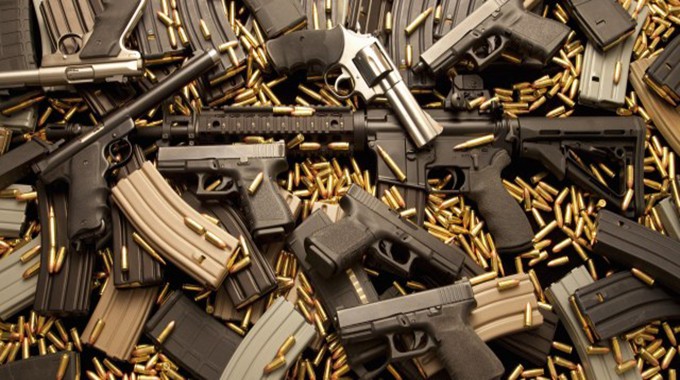UHURU DAY: Zimbabwe turns 38
TODAY Zimbabweans from all corners of the world are celebrating 38 years of independence!
Celebrations will be held countrywide, at district and provincial levels today, with the national celebrations to be staged at the National Sports Stadium in Harare.
The first national independence celebrations were held at Rufaro Stadium in Harare, then Salisbury.
Lord Christopher Soames, the last governor of the then Southern Rhodesia watched as Prince Charles of Wales gave a farewell salute and the Rhodesian Signal Corps played God Save the Queen, the British anthem.
Many foreign figures attended, including Prime Minister Indira Gandhi of India, President Shehu Shagari of Nigeria, President Kenneth Kaunda of Zambia, President Seretse Khama of Botswana and Prime Minister Malcolm Fraser of Australia representing the Commonwealth of Nations.
Legendary musician, Bob Marley, was invited by the new government to provide entertainment and among the songs he played was the famous song, Zimbabwe, which he specifically composed for the celebrations.
The then capital Salisbury was renamed Harare on April 18, 1982 while the main street in the capital, then Jameson Avenue, was renamed in honour of Samora Machel, then President of Mozambique.
The new constitution provided for a non-executive President as Head of State with Prime Minister as Head of Government. Reverend Canaan Banana served as the first President.
However, the constitution was amended in 1987 to provide for an Executive President and the office of the Prime Minister was abolished with the constitutional changes coming into effect on January 1, 1988.
The first executive president was President Robert Mugabe, who resigned in November last year.
There were two separate voters’ rolls at Independence, one for the black majority, who had 80 percent of the seats in Parliament, and the other for whites and other ethnic minorities, such as people of mixed race, and Asians who held 20 percent.
The government amended the constitution in 1986 doing away with the dual voters’ roll, while in 1990 the government abolished the senate and increased the House of Assembly’s membership to include members nominated by the President. However, the Senate has since been re-introduced with Edna Madzongwe being the President of the Senate.
On December 22, 1987, the Unity Accord was signed between Zanu and Zapu, bringing an end to civil disturbances that had occurred in Matabeleland and parts of Midlands.
Former President Mugabe and the late vice president Cde Joshua Nkomo signed the accord on behalf of their respective parties.
Fighting stopped after the 1987 Unity Accord and those involved in the disturbances were granted amnesty.
The two liberation movements united to form Zanu-PF and Cde Nkomo together with Cde Simon Muzenda were appointed vice presidents.
The country later witnessed the emergence of new political parties such as MDC led by the late Morgan Tsvangirai, which later split with Tsvangirai becoming leader of MDC-T and Professor Welshman Ncube emerging as leader for the other MDC formation.
Zimbabwe held harmonised elections in March 2008. These combined council, parliamentary and presidential elections. The three top contenders in the presidential race were Mr Mugabe for Zanu-PF, Mr Tsvangirai for MDC-T and Dr Simba Makoni as an independent candidate.
However, there was no outright winner in the first round, prompting a second round which was held on June 27, 2007 in which Mr Tsvangirai withdrew at the last minute and led to a resounding victory for Mr Mugabe.
The reaction to the presidential election run-off was varied, with the US and the European Union refusing to recognise the outcome and intensified their sanctions on Zimbabwe.
Preliminary talks to set up conditions for official negotiations between the leading parties were done.
On September 15, 2008, some leaders of the 14-member Sadc witnessed the signing of the power sharing agreement in Harare. The deal was brokered by the then South African leader, Thabo Mbeki.
Mr Mugabe, Professor Arthur Mutambara and Mr Tsvangirai signed the Global Political Agreement to pave way for the formation of the inclusive government. A new constitution was also drafted.
The inclusive government was dissolved after Mr Mugabe won the July 2013 elections resoundingly.
On November 21, 2017, Zimbabweans from all walks of life thronged the streets on Harare, Bulawayo, Gweru and other cities to celebrate the ushering in of a new political dispensation through the Operation Restore Legacy led by the Zimbabwe Defence Forces which saw the resignation of Mr Mugabe as president.
The new dispensation saw the swearing in of then Vice President Emmerson Mnangagwa as the new President.
state media














